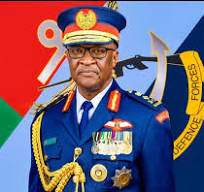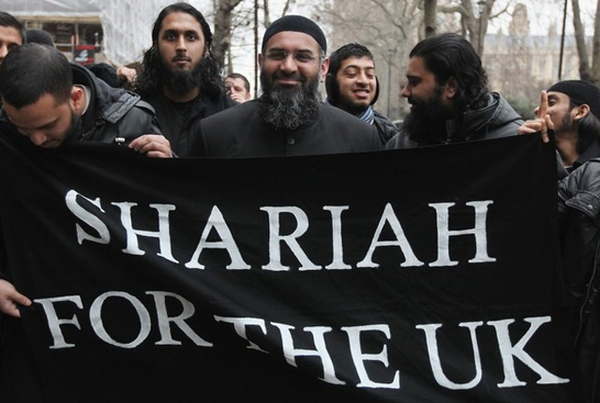
- In 2014, the Telos Group was outed as an anti-Israel organization not living up to its “pro-Israeli, pro-Palestinian, and pro-peace” self-description.
- Instead of building substantive bridges between Palestinians and Israelis, the bridge Telos appears most intent on building is a financial one between America and Ramallah. Telos’s actions demonstrate the organization is pro-PLO/Palestinian Authority, not pro-Palestinian.
- Telos is focusing its efforts on enabling a corrupt, oppressive PLO/PA government that has opposed peace on multiple occasions, oppressed its citizens by denying them freedom of speech and protection from religious persecution, and jailed journalists who dare to criticize the PA’s undemocratic government and its abuses of its citizenry — certainly not a pro-Israeli/pro-Palestinian/pro-peace agenda.
- Peace with Israel is premised on Palestinians no longer supporting their children engaging in terrorist acts against Israel.
- While Khalil appeals to UN Resolution 242’s “inadmissibility of the acquisition of territory by war” to justify his position on Israeli settlements, he neglects to mention that this “land-for-peace” resolution was premised on the Palestinians halting all violence against Israelis and recognizing the State of Israel.
- It is time to call the Telos Group for what it really is: Anti/Anti/Anti: anti-Israeli, anti-Palestinian, and anti-peace.
At least one person was pleased about the Obama Administration’s decision to abstain from the UN Security Council (UNSC) vote on Resolution 2334, effectively establishing the boundaries of a Palestinian state. For Gregory Khalil, the current president and co-founder of the Telos Group, an organization posing as “pro-Israeli, pro-Palestinian, and pro-peace,” it was 12 years coming. His 2004 New York Times op-ed encouraged the US to abstain from exercising their UNSC veto in defense of Israel. In December 2016, the Obama Administration finally acted upon the advice of this former Palestinian negotiation-team lawyer by abstaining from — instead of vetoing — Resolution 2334.
Founded in 2009 with the original name of the “Kairos Project,” the Telos Group described itself as:
“… a non-profit educational initiative that seeks to educate America’s mainstream faith leaders and their communities about the causes of — and solutions to — the modern conflict that currently ravages the Holy Land.”
A “bio” for Telos Group President and Co-Founder Gregory Khalil reveals:
“Mr. Khalil spent the summer of 2000 in East Jerusalem researching refugee rights under international law — as well as other issues related to final status negotiations — with renowned Palestinian legislator, negotiator, and spokesperson Dr. Hanan Ashrawi.”
By his own account, Khalil later advised the Palestinian leadership on negotiations with Israel, and served four years on the Palestinian negotiating team.
In 2014, the Telos Group was outed as an anti-Israel organization not living up to its “pro-Israeli, pro-Palestinian, and pro-peace” self-description. The following year, Telos doubled down, rebranding with that slogan as their central theme. Their rebranding efforts included unveiling a new logo, revamping their website,[1] and developing a more active presence on Facebook and Instagram. In July 2015, Telos announced on their blog the launch of their newly redesigned website “and a slightly new direction,” with the stated goal to “grow and direct the pro/pro/pro movement in America.”
While the old Telos website originally emphasized the slogan of “Educating America’s Faith Communities for Holy Land Peace,” its new website prominently displays its “Pro/Pro/Pro Peacemaking” slogan and an updated mission:
“By resourcing leaders at the nexus of culture, faith and enterprise, we equip Americans to build a transformative pro-Israeli, pro-Palestinian, pro-peace movement.”
While its leaders originally defined their target audience as “mainstream faith leaders and their communities” and then “American evangelicals,” they now define their target audience as “Americans.”
Telos’s rebranding efforts were quickly undermined by its own actions; its agenda remained unchanged. Khalil facilitated meetings with the Palestine Liberation Organization (PLO) / Palestinian Authority (PA), Palestinian companies, and the chairman of the organization behind the PayPal4Palestine campaign. In 2011 (before its rebrand), Telos posted a picture with Hanan Ashrawi on the Telos Facebook page in a photo album titled, “Conservative Leaders Trip.” Now, in 2016, the PLO posted on Facebook two press releases[2] on Ashrawi’s meetings with “a Telos Group,” featuring pictures of both meetings (one picture included Khalil). Palestinian media also reported on the meetings.[3]
Notably, Telos social media accounts did not post about the two PLO/Telos meetings. In contrast to the rebranding’s emphasis on a “pro-Israeli, pro-Palestinian, pro-peace” slogan, Telos met with an organization and government (PLO/PA) that has monetarily supported the families of terrorists who have murdered Israeli civilians.
On the same day as their second meeting with Ashrawi, Telos met with Palestinian companies that are part of a larger Palestinian push seeking to establish a Palestinian high-tech economy in both the West Bank and Gaza. These companies pressured PayPal in an unsuccessful attempt to secure PayPal tools reportedly necessary to accomplish this goal. The PLO/PA expressed support for the PayPal4Palestine movement. Khalil also tweeted the Palestinian PayPal letter from his personal Twitter account and retweeted #Paypal4Palestine messages. Telos then facilitated a meeting between the Women Donors Network’s Middle East and Peace Democracy Circle (WDN’s MEPDC) and Sam Bahour, Chairman of Americans for a Vibrant Palestinian Economy. Bahour, whose organization is coordinating the #PayPal4Palestine campaign, letter, and hashtag, posted about the meeting and thanked Khalil for it on Bahour’s Google+ account. Again, the Telos social media accounts were strangely silent.
While every pro-Israeli, pro-Palestinian, and pro-peace American longs for the day when Palestinians experience genuine economic freedom, they undoubtedly understand that money is fungible, and that in the West Bank and especially in Gaza, financial resources and economic products often end up in the hands of government and terrorist organizations instead of in the hands of impoverished Palestinians. The PayPal4Palestine movement (supported by the Palestinian companies who met with Telos) offered its assistance to PayPal to work around any legal issues by working with “officials.” But those PA and Hamas officials are part of the very regimes responsible for stealing resources from the Palestinian people. The unsuccessful PayPal4Palestine movement did not call for the serious internal Palestinian reforms necessary to enable genuine economic prosperity to reach the average Palestinian suffering under an oppressive government.
Khalil’s December 2016 New York Times op-ed provides a key insight into what could potentially be driving Telos’s and his private economic advocacy efforts: “They [leaders] should also help avert collapse of the partly dependent Palestinian economy by enabling greater access of goods and people to Jerusalem’s global marketplace.”
On January 10, 2017, Telos shared a Jerusalem Post op-ed by Gershon Baskin, asking, “Is the Palestinian Authority an effective government? What challenges does it face? Check out this opinion piece to learn more about the PA.”
In the piece, Baskin, who claimed to have worked to bring “tens of millions of dollars of private-sector investments into Palestine,” blamed Israel for the failures of the Palestinian Authority. He dismissed PA corruption, excused the lack of democratic elections, justified PA nepotism, and suggested that Palestinians have more freedom under the Palestinian Authority “than in any other Arab country.” Baskin urged Israelis and Palestinians alike not to give up on the PA, and argued:
“Investment in the private sector and especially direct foreign investment in Palestine is way too low. Part of that comes from the donor mentality that has been created and fostered whereby Palestinians have learned to expect projects to be supported by free money rather than having to risk investing their own money in expanding the economy.”
Instead of building substantive bridges between Palestinians and Israelis, the bridge Telos appears most intent on building is a financial one between America and Ramallah. Telos’s actions demonstrate the organization is pro-PLO/Palestinian Authority, not pro-Palestinian. At a time when Telos has a tremendous opportunity to advance genuine peace between Israelis and Palestinians, it is focusing its efforts on enabling a corrupt, oppressive PLO/PA government that has opposed peace on multiple occasions, oppressed its citizens by denying them freedom of speech and protection from religious persecution, and jailed journalists who dare to criticize the PA’s undemocratic government and its abuses of its citizenry.
While operating as a pro-PLO/PA-narrative non-profit, the Telos Group masquerades as a pro-Israeli/pro-Palestinian/pro-peace non-profit. Based on its leadership and their behavior to date, its ultimate objective would appear to be an economically viable Palestinian state on terms more favorable to the PLO/PA than to Israelis, Palestinians, or peace — certainly not a pro-Israeli/pro-Palestinian/pro-peace agenda.
Given the recent UN vote, Khalil’s New York Times op-ed from 12 years ago is still relevant. Khalil’s 2014 hour-long presentation to students participating in a model UN cleverly presented the pro-Palestinian narrative as the historical perspective. His choice of language during his history review and his version of the Israeli and Palestinian narratives cast Palestinians in a sympathetic light and Israelis in an unsympathetic and historically inaccurate light.

Gregory Khalil addresses students participating in a model UN, in Jackson, Wyoming, on November 16, 2014. (Image source: InterConnections21 video screenshot)
|
During the presentation, Khalil told the audience:
“I see different conversations emerging, among key populations in Israel, in Palestine, and in the international community who’s been a full party to this conflict all along — it’s not half a world away. I see different conversations that aren’t about silly talking points anymore like, ‘Oh, if Palestinians just learned to love their own kids more than they love killing Jews.’ Like, you know, racist sentiments like that. Or ‘Oh, if Israelis just didn’t want to just wipe all Palestinians off the map and just trying to just completely kill us and get rid of us.'”
Paraphrasing a quote popularly attributed to former Israeli Prime Minister Golda Meir, Khalil labeled it a “racist sentiment.” While there is now some question whether Golda Meir did in fact say the original quote (“Peace will come when the Arabs will love their children more than they hate us”), his criticism of the quote’s message was misleading. Peace with Israel is premised on Palestinians no longer supporting their children engaging in terrorist acts against Israel. Khalil’s choice of a parallel Palestinian talking point is strange, considering that talk of wiping Israel — not Palestinians — off the map is the anti-Israel rallying cry popularly attributed to Iran then President Mahmoud Ahmadinejad (although the exact translation is disputed).
Talking to the model UN students, Khalil promoted the narrative that the State of Israel came into existence primarily as a result of the Holocaust, and that Palestinians were unjustly punished for what the Jewish people endured during the Holocaust:
“Palestinians on the ground were like, ‘Wait a second! What are you talking? Why should we be responsible for what happened over there in Europe in this massive war. Like we’re connected to this land too.’ Just as my family would tell you or Palestinian Christian, their first Christians were, of course, here in the Holy Land. And Muslims have family trees that go back 1,500 years.”
Khalil’s narrative misconstrues the history of the region during, and immediately following, the Holocaust. By suggesting that Palestinians were innocent bystanders during the Holocaust, Khalil is misleading his student audience. The United States Holocaust Memorial Museum has documented how the Grand Mufti of Jerusalem, Haj Amin Al Husseini, met with Adolf Hitler, sought to assist the Nazis in murdering Jews in Europe, and expressed his desire to destroy Jews and the Jewish homeland. By inaccurately seeking to establish Palestinians as the indigenous people of the Holy Land, Khalil’s speech does not address that the first Christians of the Holy Land 2,000 years ago were Jewish disciples of Jesus, a Jewish carpenter whose Jewish family tree dates back thousands of years.
On at least two occasions, Khalil has misrepresented the legal situation of Israeli settlements in the West Bank, also known as historic Judea and Samaria. Both in his 2014 model UN speech and during a January 2, 2017 Global Immersion webinar, Khalil used the analogy of a foreign country invading the United States to describe the settlements. For his model UN speech, he equated Israeli settlements to Canada building towns in the United States. During the webinar, he used the analogy of Mexico invading and building towns in San Diego.
While Khalil appeals to UN Resolution 242‘s “inadmissibility of the acquisition of territory by war” to justify his position on Israeli settlements, he neglects to mention that this “land-for-peace” resolution was premised on the Palestinians halting all violence against Israelis and recognizing the State of Israel. Historically, when Israel has withdrawn from territory in exchange for peace, Palestinians have continued to launch both verbal (incitement to violence) and physical attacks on Israel’s sovereignty and security. Since Israel withdrew from Gaza in 2005, Israeli communities have lived under constant threat of Hamas rocket fire. And as recently as January 2017, Hanan Ashrawi reiterated the PLO/PA’s unwillingness to recognize Israel as a Jewish state.
So how is the Telos Group continuing its anti-Israel narrative and advocacy under the guise of a new direction? Demonstrating that its rebranding is nothing more than a facade for its real agenda, the Telos Group cleverly packages and disseminates PLO/Palestinian Authority talking points — creating a generation of misinformed anti-Israel activists in America while the PLO/PA does the same in the Middle East. The key is Telos and Khalil’s choice of language, construction of narrative, and questionable public relations efforts.
In 2010, at a Capitol Hill event, Gregory Khalil laid out the reasoning behind the Telos Group’s (then known as the Kairos Project) values-oriented language:
“For many years, we’ve sort of ceded the language that relates to values, and fundamental human rights, and social justice in favor of a more sort of pragmatic political language. Now, I don’t mean to diminish the role of politics, because this conflict is not a theological conflict; it’s a political problem. But I’m trying to say that there are ways to engage new voices who can be helpful rather than harmful.”
As someone of Christian Palestinian descent, Khalil should be familiar with the fact that Islamic radicals such as Hamas and Hezbollah cite Islamic texts to justify theologically their attempts to destroy the Jewish people and the State of Israel. Many Christians and Jews also view this conflict not in strictly political terms, but in theological terms. While secularists in both Israeli and Palestinian societies may view this conflict only in political terms, to deny the theological underpinnings of the conflict is to ignore the root causes of the conflict and to be ignorant of potential real-world consequences of proposed conflict solutions.
As a result of this misguided perspective on the conflict, the Telos Group is indoctrinating “new voices” (the younger generation and their influencers) on the Israeli-Palestinian conflict through the storytelling method that builds empathy for the Palestinian cause while using language that appeals to this generation’s values, sense of social justice, and dedication to protecting human rights. Khalil’s model UN speech was a prime example of this process and agenda. Through his language and narrative, he builds support among his model UN audience for taking action and upsetting the status quo.
Four articles published since the Telos rebranding, and shared on Telos’s social media accounts, vividly demonstrate that while the organization’s public relations efforts were supposed to establish the rebranding, they in fact revealed the organization’s efforts to disseminate PLO/PA talking points.
After going on a Telos Group tour, Washington Post religion writer Sarah Pulliam Bailey wrote a glowing piece in December 2015 entitled, “How some evangelicals are challenging a decades-long stance of blanket support for Israel’s government.” Bailey’s article title is of note, since in describing their tours, the Telos website states tour participants “encounter multiple Israeli and Palestinian narratives,” and that “Telos guides expertly balance and interpret these meetings…”
Former Telos trip participant Justin Kron is a Christian tour guide, leading Israel tours emphasizing the Christian faith’s Jewish roots. Researching Palestinians’ access to water after his 2013 Telos tour, he found the tour had provided him with only one side of the story on that hot button topic — the pro-PLO/PA narrative. In 2014, another Telos Group trip participant, Cameron Strang, Founder and CEO of the Relevant Media Group, wrote an article on the Israeli-Palestinian conflict presenting only the pro-PLO/PA narrative on a host of topics, including Palestinian water access.
In her Washington Post piece, Bailey had observed, “The trip focused mostly on Israel as a modern state, rather than Israel as a biblical land.” The pro-PLO/PA narrative promoted by Telos focuses on Israel’s current existence and the conflict, while willfully ignoring thousands of years of Jewish presence in the land and seeking to replace it with the false narrative of an indigenous Palestinian population. Writing in the Middle East Quarterly, author and professor Dr. David Bukay explained:
“Rewriting the history of the Land of Israel by erasing Jewish history and replacing it with a fabricated Palestinian history is a central goal of the Palestinian Authority (PA)…. In the official Palestinian narrative, the Palestinian people are authentic and indigenous while it is the Israelis who are the foreigners, invented, and sown in a land that is not theirs.”
December 2016, Khalil was quoted in a Washington Post article about Palestinian Christians, and also authored a New York Times op-ed about moving the United States embassy in Israel from Tel Aviv to Jerusalem. Both articles illustrated that the Telos Group, Khalil, and their friends in the media are regrettably shilling for the PLO/PA through the use of language and storytelling which mirror the language and narrative of an oppressive, undemocratic, often genocidal group.
In the Washington Post piece, Bethany Allen-Ebrahimian (Assistant Editor of Foreign Policy) inaccurately blamed Israel as the cause of Palestinian Christians’ suffering. She quoted Khalil misrepresenting the Holy Land’s history:
“I and many other Americans of Palestinian Christian ancestry will often get asked: When did you convert? ‘2,000 years ago, when did you convert?’ is a standard response.”
In words eerily similar to those of the PLO’s Hanan Ashrawi, Allen-Ebrahimian reprimands American Evangelical Christians for supporting “Israeli security policies” that “have…made life difficult for Christians in Palestine and have cut them off from parts of their homeland.” Allen-Ebrahimian goes on to claim:
“Sen. Ted Cruz (R-Tex.), an outspoken conservative Christian politician and proponent of Israel, demonstrated that particular myopia when he gave the keynote speech at a 2014 conference hosted by [In Defense of Christians] IDC. A contingent of Arab Christians booed Cruz off stage after he declared ‘Christians have no better ally than the Jewish state.’ For Palestinian Christians, that simply isn’t true.”
Expressing similar sentiments, Hanan Ashrawi recently rebuked Greek Orthodox Patriarch of Jerusalem Theophilos III (whose title is “Patriarch of Jerusalem and All Palestine“) over his description of Israel as a “democracy” with “freedom of worship.” Launching into the PLO/PA narrative, she libeled Israel, inaccurately claiming the Jewish State is the cause of Palestinian Christians’ suffering. Ashrawi disingenuously referred to “the impact of the Israeli occupation of East Jerusalem” and preposterously declared “thousands of Palestinian Christians cannot access their own Holy Sites in Occupied East Jerusalem due to Israel’s illegal annexation Wall and other movement restrictions.”
In contrast to the PLO/PA narrative, both the Arab journalist Khaled Abu Toameh and Pierre Rehov have described the heartbreaking causes of Palestinian Christian suffering under both the PLO/PA and Hamas.
In Khalil’s December 2016 New York Times op-ed, he claimed, without citing statistics or historical precedent to back up his claims, that violence would be the likely result of moving the US embassy from Tel Aviv to Jerusalem. Interestingly, but not surprisingly, Khalil’s comments mirror, in part, those of Fatah Central Committee official Sultan Abu Al-Einein, who reportedly said on January 1, 2017:
“We must prepare for a new confrontation with the new US administration, which has declared, clearly and audaciously, that Israel and its settlements are legitimate and legal, and has sent a delegation in order to move its embassy from Tel Aviv to Jerusalem. I believe that any American act of stupidity will ignite the Palestinian territories, and that the US administration, along with the Israeli arrogance in continuing its settlement activity, will bear responsibility for the return of bloodshed in the Palestinian territories.”
On January 15, 2017, the day of the Paris conference on the Israeli-Palestinian conflict, Telos posted and article by its Executive Director and Co-Founder Todd Deatherage, in Christianity Today, about the Security Council resolution vote, Secretary Kerry’s speech, and the incoming Trump Administration’s stance on the Israeli-Palestinian conflict. Deatherage’s Christianity Today “bio” stated that Telos “aims to build a pro-Israeli, pro-Palestinian, pro-peace movement.” In contrast to his organization’s pro-PLO/PA actions, Deatherage admonished Christians:
“any community steeped in the Sermon on the Mount must seek ways to reject the fictions of a winner-takes-all world, and embrace things like working for security, dignity, and freedom for Israelis and Palestinians.”
Considering the current Middle-East turmoil, his dismissal of “the fictions of a winner-takes-all world” shows a profound disconnect from current Middle East reality facing Israelis and Palestinians — the PLO/PA and Hamas both pose an existential threat to Israelis’ safety and security and obstruct Palestinians’ pursuit of freedom and prosperity.
Deatherage claimed:
“Any just end to the Israeli-Palestinian conflict requires an honest diplomatic process, accompanied by vigorous bridge-building and reconciliation at the grassroots level. Christians in the US often envision their role in this as taking one side against the other. But there is a third way, one that takes seriously Jesus’ admonition that ‘blessed are the peacemakers’ and seeks to live that out by indentifying [sic] with those on both sides who are working for peace.”
Unfortunately, Telos and Deatherage’s unwillingness to hold the PLO/PA accountable for their corruption and oppression, and their willingness instead to spout PLO/PA talking points about the conflict and proposed conflict solutions, undermine their credibility to lead the bridge-building, reconciliation, and peacemaking efforts of Christians genuinely seeking to ensure peace and security for all Israelis and Palestinians.
So why was the Telos Group facilitating meetings with the very government and organization that oppresses its own people and, through their actions, limits Palestinians’ freedom of speech and economic activity? Why was the Telos Group, through its public relations efforts, participating in gaslighting Israel and its Christian supporters right before Christmas? Unfortunately, the Telos slogan of “pro-Israeli, pro-Palestinian, and pro-peace” is misleading: that is not its true identity behind the facade. The Telos Group’s most recent blog post by Deatherage, “How can we be Pro-Pro-Pro Right Now?”, confirms what research has shown. Gregory Khalil’s model UN speech and his New York Times op-ed demonstrate the organization’s attempts to use deceptive language and the storytelling method to disguise its true agenda.
Facilitating meetings among those seeking to revitalize the Palestinian economy without necessary Palestinian reforms, Telos plans to use congressional lobbying and their ties with philanthropists and activists to upset the status quo and disrupt peace. Its false narrative currently targets grassroots Americans who are genuinely pro-Israeli, pro-Palestinian, and pro-peace. Given that the upcoming 2017 Telos Leadership Gathering’s theme is “Disrupting the Status Quo: Pro/Pro/Pro in Action,” Americans should be aware of this organization’s true intentions and agenda. It is time to call the Telos Group for what it really is — Anti/Anti/Anti: anti-Israeli, anti-Palestinian, and anti-peace.
Noah Summers is a specialist on Middle East affairs and American foreign policy.







































